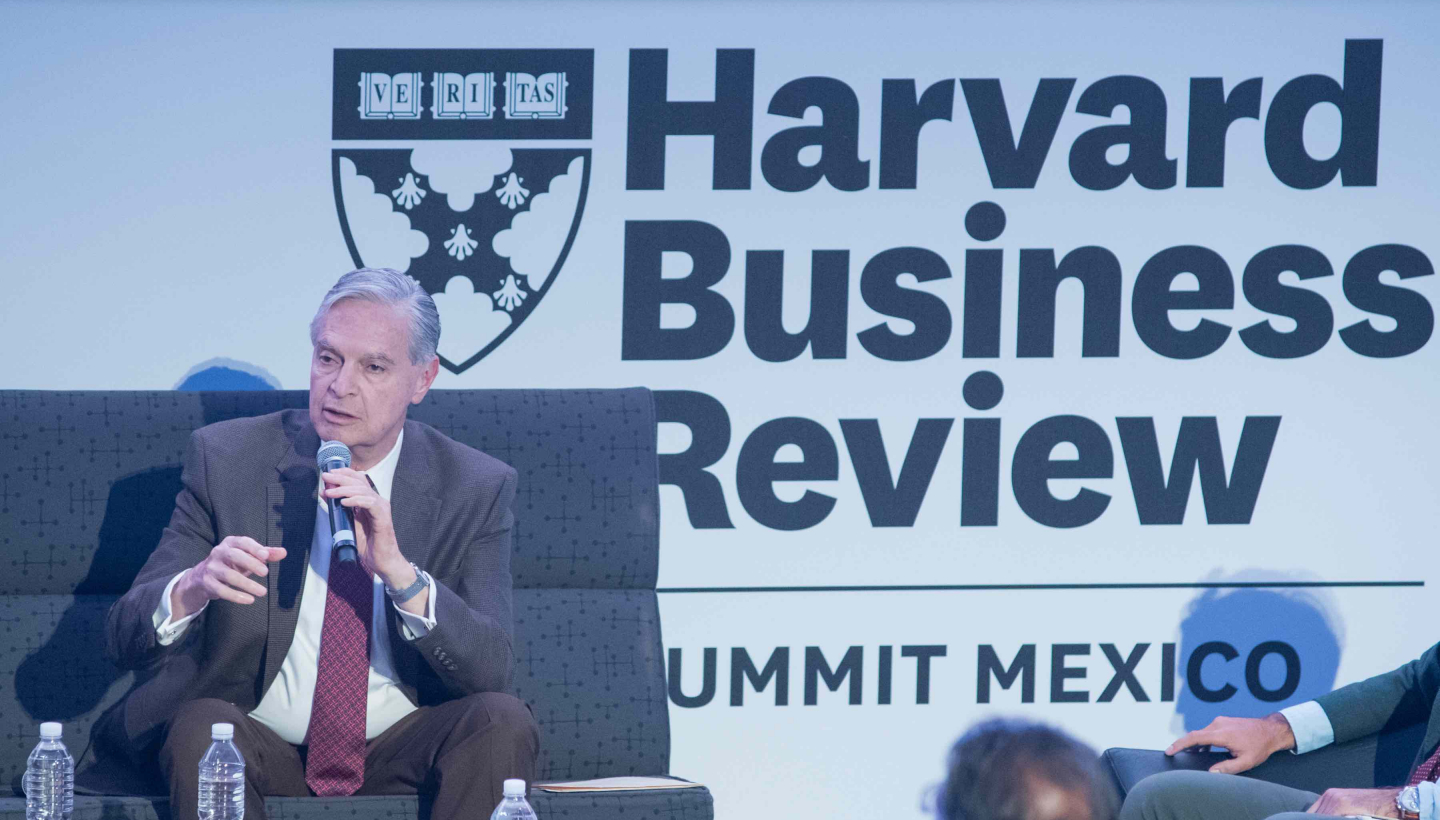"How many of your companies have been affected by digitization?" Harvard Business Review senior editor Eben Harrell launched the question to the public during the presentation of the HBR Summit Mexico 2017 at IPADE Business School in Mexico City on Thursday. The answer? Several tens of hands raised. For Harrell, the digital transformation of large companies, the impact of disruption and the role of leadership in a time of change are the three key issues that define the present moment. "Each of the articles that we publish must have a new component and another one that will take it to the next level," he said. Applicable reality, this is the interesting thing.
Harrell discussed the most relevant ideas published in HBR last year in his conference "Diversity, disruption and why power corrupts: highlights from HBR in 2016". In it, Harrell emphasized that "being in the right place at the right time is key to disruption in business". Nevertheless, and despite the advantages that can lead to a disruptive change, "the power of the paradox is that the good guys win but suddenly they stop being good." In this sense, "Mexican business leaders are observed, so they must be constantly updated and exposed to what happens beyond their borders, in order to transform and continue to grow."

The presentation day was concluded with thoughts from CEO & co-founder of Koibanx, Gabriel Kurman. Kurman, an expert in block-block technology, commented that "you have to tear down myths such as the idea that money should be issued by governments." This, he said, will allow us to take advantage of the "thousands of ways and new formulas" that technology makes possible. He also summarized in his conference "Blockchain: The history of money and cryptomonedas" that "Bitcoin will make banks, what Netlfix did." "In this sense, there are many interesting business opportunities in different areas," added the entrepreneur, who pointed out that, "due to its social characteristics, Latin America is more inclined to use the blockchain." Kurman presented possibilities such as smart contracts and their corporate application for financial inclusion and microfinance.



